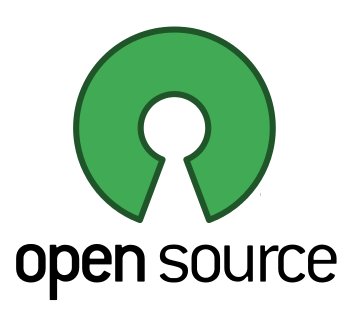
The Indian Government has been talking of systems based on open source for a long time, but these vague intentions are finally beginning to be put into practice now. According to a latest draft policy on e-governance, all new projects must work on open source operating systems only.
The draft titled Policy On Device Drivers For Procurement Of Hardware For e-Governance states that the, “Government of India (GOI) endeavours to provide e-governance services, which are technology-neutral, cost-effective, interoperable and vendor-neutral. The GOI Policy on open standards is a step towards meeting this objective in the development of e-governance applications.” The policy will be applicable in all new e-governance projects, as well as in existing ones.
The idea behind the draft
While implementing open source, device drivers for all General-Purpose Operating Systems (GPOSs) are, often, not available. “Hence, to empower the implementation of e-governance projects, there is a need for a policy from the GOI for the procurement of computers and associated peripherals, with neutrality to all general-purpose OSs,” the draft states.
The draft clarifies the reason for covering both computers and peripherals. According to the document, most parts of the computer generally work with recent stable versions of both Windows and Linux operating systems. However, some devices, both internal (Web-cams, inbuilt sound systems and speakers) and external (like printers, scanners) may require drivers; the policy has to be applicable to them also. Hence, both computers and peripherals are covered in the policy, to ensure the proper working of the complete computer system.
What OEMs need to comply with
The Department of Information Technology (DIT) has demanded the following from Original Equipment Manufacturers (OEMs):
- Computers should be capable of running on all GPOSs.
- OEMs should provide drivers for computers and peripherals, which are capable of functioning on all GPOSs.
- Drivers for GNU/Linux (one of the GPOSs) should satisfy any of the following conditions:
- The source code, build procedure and installation instructions for the drivers must be made available as per any of the Open-Source Software (OSS) licences listed. Using these drivers, computers and peripherals must be operational with the latest stable Linux kernel. Drivers compliant with these conditions are then expected to work in any of the Linux distributions.
- The source code, build procedure and installation instructions for the drivers must comply with LSB 3.0 or higher versions, and be accepted by any of the Linux distributions. This compliance is opted for because the current stable version of Debian (Version 6.0 Squeeze) is compliant with LSB version 3.2, and not LSB version 4.0
- In case only binaries are made available for the drivers, then they should be Linux-compatible; in addition, kernel-dependent binaries must adhere to the specifications of the latest stable Linux kernel.
As mentioned above, the adherence to any one of the three conditions is sufficient when considering the Linux OS. The reason cited for this is, as follows: “The source code of the device driver for the Linux Operating System is made available through two approaches: (a) under open source licences, and (b) LSB compliance, as indicated in the policy. The binaries for the device drivers can be built using either approach. A third approach is to use the binary device driver provided by the vendor as per the policy requirements.”
Licenses needed
The open source licenses mandated by the policy are:
- Apache License, Version 2.0
- Eclipse Public License, v 1.0
- European Union Public License (EUPL v.1.1)
- GNU General Public License, version 2 (GPLv2)
- GNU General Public License, version 3 (GPLv3)
- Mozilla Public License 1.1 (MPL 1.1)
- The BSD License
- The GNU Lesser General Public License, version 2.1 (LGPLv2.1)
- The GNU Lesser General Public License, version 3.0 (LGPLv3)
- The MIT License
- Any other licence which gives users the freedom to copy, modify and redistribute driver source code without any restrictions.
The draft policy clarifies the necessity for so many open source licenses. It states: “The widely used OSS licenses are listed along with the generic Open Source Software License, which gives users the freedom to copy, modify and redistribute driver source code without any restrictions. Hence, the driver is made available by building the executable from the source code available under any one of the listed licenses.”
Community gives this move a thumbs up!
Adopting open source in e-governance is a major decision for the government. The move has been welcomed by the FOSS community, which gave a thumbs-up to the Department of Information Technology. Apart from the expert comments we received while compiling this story, we asked members of the LINUX For You community on Facebook to tell us what they felt about this move.
Ashraf Khan Mohamed, a Linux enthusiast and a member of the LFY community, says, “If this does not get derailed by the likes of Microsoft, I would like to believe that the GoI is finally getting around to accepting the fact that we in India need computing that is on our terms, and not at the mercy of some overseas behemoth bent upon profit and ‘world domination’. The next area that the GoI can formulate a policy for is regarding software applications from proprietary vendors (for example AutoCAD, Adobe PhotoShop, Tally etc) — they should also all be GPOS compliant.”
Yogesh GiriKumar, applications specialist with CSS Corp, Chennai, says, “This decision is going to result in major saving of government revenues. The government has had to spend crores of rupees year after year on proprietary software. This money can be saved and utilised for better purposes, if they switch over to open source.”
Probable issues
One cannot underestimate the tight grip of proprietary software on the Indian system. Be it our homes or colleges, offices or Internet cafes, we are fed with proprietary software at all times. It wouldn’t be an exaggeration to call this a software addiction. In such a case, won’t it be difficult to implement open source at the ground level? Yogesh answers this, “Training of human resources is the only aspect that needs to be worked upon. But open source systems have evolved to be very user-friendly over time, so I don’t see much difficulty in learning these systems.”
However, Dharam Rohila, director, Netsoft Consulting Services, adds that changing the mindset of government employees is difficult. He says, “I have worked in the government as well as in the private sector. On the basis of my experience, I can say that it will take some time for employees to adopt this system.”
Adding to this, he said, “A separate implementation and monitoring body is required for the success of this venture. This will help solve implementation issues to a great extent.”
Yet another issue pointed out by Rohila is the integration of software. He says, “Integration can be a nightmare if different modules are bought from different vendors. For example, if the finance module is bought from a different vendor than that of the sales module, integrating the two can be a big problem. It will be better if different modules are purchased from the same vendor, to avoid any such integration issues.”
Experts opine that the government should resort to long-term solutions for adopting open source in e-governance. Pradeep Valsangkar, managing director and chief consultant, GCS Consulting Services Private Limited, says, “The Internet is flooded with ‘pre-cooked’ open source software. The government needs to guard against such solutions.”
The industry also emphasises the reliability of open source systems as compared to proprietary software. Girikumar says, “Reliability of software is one of the primary requirements for the state. However, terms such as ‘rock-solid’ and ‘fail-safe’ cannot be used to describe proprietary software. Till now, the reliability of most software has been atrocious. However, the foundation of Free and Open Source Software (FOSS) is high reliability. All the running gear of the Internet—TCP/IP, DNS, Sendmail, Perl and Apache are free software, which have demonstrated a level of reliability and robustness under rapidly changing conditions (including a huge and rapid increase in the Internet’s size) that, when evaluated against the performance record of even the best of closed commercial software, is nothing short of astonishing.”
It goes without saying that the implementation of open source in e-governance is a welcome decision. How long it’ll take to become a reality, only time can tell!
















































































Unless the Microsoft fanboishness and bribery of big Indian IT companies is terminated (big e.g. — Infosys), nothing can be done.
Unfortunately this has not reached most of the schools and universities yet. Or it has but the sysadmins are too lazy to swap out Windows XP